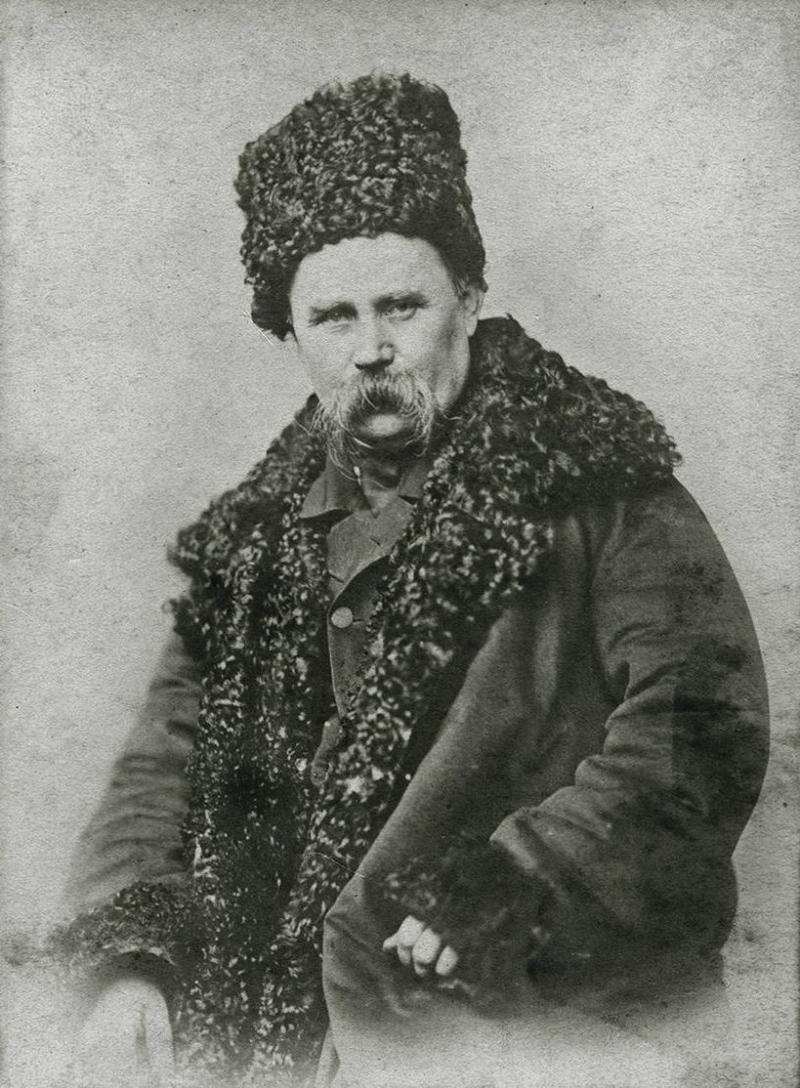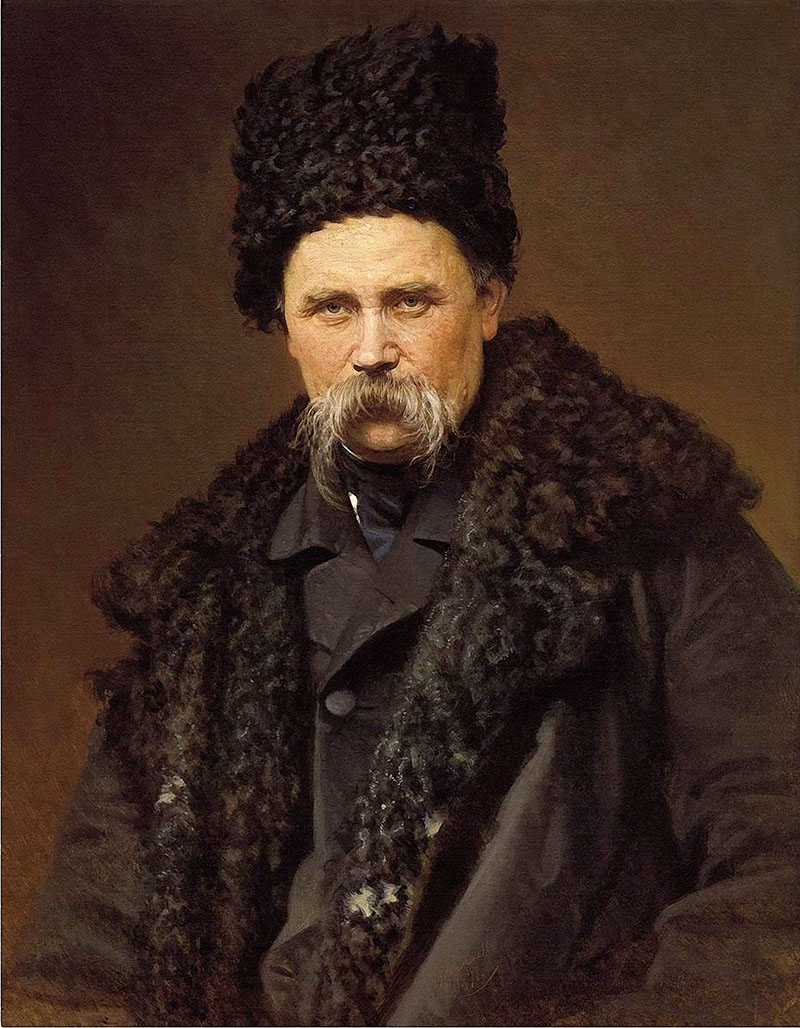Taras Shevchenko
Taras Hryhorovych Shevchenko, also known as Kobzar Taras or simply Kobzar (a kobzar is a bard in Ukrainian culture), was a Ukrainian poet, writer, artist, public and political figure, folklorist, and ethnographer who lived from 9 March [O.S. 25 February] 1814 to 10 March [O.S. 26 February] 1861. His literary legacy is regarded as the foundation of modern Ukrainian literature and, to a large extent, the modern Ukrainian language, though the language of his poems differs. He also wrote some Russian works (nine novellas, a diary, and an autobiography). Shevchenko is also well-known for his works as a painter and illustrator and is one of the most important historical figures in Ukraine.
He was an Imperial Academy of Arts fellow. Despite never having been a member of the Brotherhood of Saints Cyril and Methodius, Shevchenko was convicted in 1847 of explicitly promoting Ukrainian independence, writing poems in Ukrainian, and mocking members of the Russian Imperial House. Contrary to members of society who did not understand that their actions contributed to the idea of an independent Ukraine, he was a champion of independence, according to the secret police.
Many memorials to Shevchenko can be found throughout Ukraine, most notably at his memorial in Kaniv and in the center of Kyiv, just across from the Kyiv University that bears his name. Tarasa Shevchenka Metro Station in Kyiv is also named after Shevchenko. Other notable poet monuments in Ukraine include those in Kharkiv (in front of Shevchenko Park), Lviv, Luhansk, and many others.












